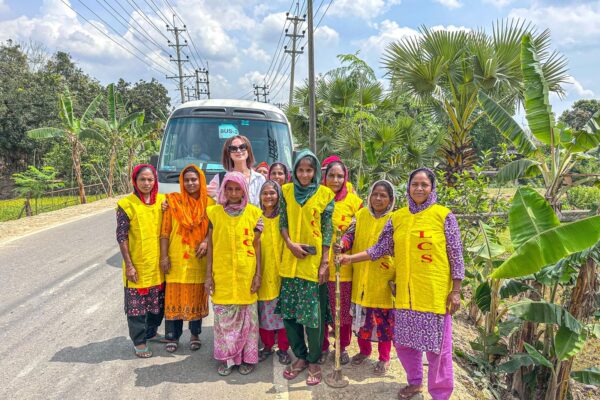
Suvar, Bangladesh – From April 8–10, 2025, the Employment Intensive Investment Programme (EIIP) Inter-regional Forum for Asia and the Arab States brought together more than 80 government representatives, development practitioners, and ILO experts from 18 countries for a landmark event dedicated to advancing South-South and Triangular Cooperation (SSTC). Hosted by the Government of Bangladesh and the Local Government Engineering Department (LGED), and facilitated by the International Labour Organization (ILO), the forum showcased the power of SSTC in driving inclusive development, employment creation, and resilience-building across regions.
Held in Suvar, the forum offered a platform for peer learning, joint strategizing, and experience sharing between countries tackling shared challenges related to unemployment, climate vulnerability, and post-crisis recovery. The event marked a pivotal step in extending the legacy of ILO’s regional SSTC seminars—traditionally held in Africa—into Asia and the Arab States, reflecting a growing commitment to horizontal partnerships and mutual exchange.
In his opening remarks, Mr. Tuomo Poutiainen, ILO Country Director for Bangladesh, emphasized the critical role of SSTC in promoting localized solutions and peer-driven learning. “Bangladesh stands at a strategic crossroads,” he noted, “and South-South Cooperation provides a timely opportunity to elevate local innovations to regional platforms, ensuring that no one is left behind—particularly women, youth, persons with disabilities, and rural communities.”
Mito Tsukamoto, Chief of the Employment and Investment Branch at ILO Geneva, reinforced this message during her address, highlighting the need for the Asia and Arab States regions to establish a regular cycle of SSTC engagement, much like the successful seminar series in Africa. “South-South and Triangular Cooperation is more than a methodology—it’s a movement,” she said. “It’s about showcasing achievements, exchanging technologies, organizing study visits, and building trust through shared goals.”
Throughout the forum, key thematic sessions addressed the relevance of EIIP in the regional context, its role in rapid crisis response, and how local resource-based approaches contribute to both recovery and sustainable development. Country representatives from Iraq, Sri Lanka, Yemen, Afghanistan, Bangladesh, Myanmar, and many others shared concrete examples of how EIIP and SSTC are driving progress in their respective contexts.
Discussions culminated in action-oriented group work where participants identified challenges and formulated joint strategies to expand cooperation across borders. The event also included a field visit showcasing Bangladesh’s implementation of EIIP-supported rural infrastructure projects, providing first-hand insight into employment generation through climate-resilient investments.
In the closing session, Mr. Tomas Stenstrom, Senior EIIP Specialist from ILO India, emphasized the need to embed EIIP principles within national systems and to promote continued innovation, inclusion, and capacity-building through regional partnerships. “SSTC is not just a support mechanism,” he remarked, “it’s a cornerstone for how we address interconnected global challenges—through solidarity, shared knowledge, and local leadership.”
The ILO reaffirmed its commitment to serving as a convener and facilitator of SSTC platforms and encouraged participating countries to consider hosting future seminars, ensuring the momentum continues across regions.
As nations grapple with economic uncertainty, climate risks, and social inequality, the Dhaka forum demonstrated that South-South and Triangular Cooperation—grounded in the EIIP approach—offers a proven pathway toward building inclusive, resilient, and job-rich economies.

